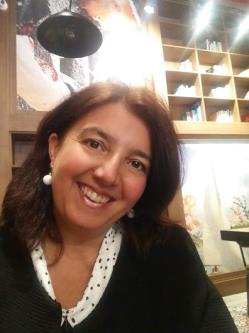Leveraging ICT for ageing populations: addressing Gender disparities & measuring Impact
Womenvai, University of Bari Aldo Moro and their partners
Session 221
An international w/shop for the dissemination of the Age-IT program results and other prospects
At the occasion of WSIS+20, WOMENVAI and its partners — the University of Bari (Italy), ESIF (Cameroon), EPF Engineering School (France), Centro-i (Mexico), Abshore (France-Tunisia), and Swiss Engineering (Geneva, Switzerland) — present an international workshop dedicated to the dissemination of outcomes from the Age-IT program and forward-looking strategies.
This session will explore how digital technologies can empower ageing populations, especially women, by closing the digital gender gap and building inclusive, human-centered tech ecosystems. Discussions will cover innovative practices in ICT design for active ageing, measurable social impact frameworks, and cross-sectoral collaboration.
From the WOMENVAI perspective, this gathering also opens the floor to envision a post-2025 agenda: one that champions digital equity, ethical AI, climate-responsive tech, youth engagement, and global cooperation with local sovereignty. Participants will collectively examine how to ensure emerging technologies serve as tools of empowerment — not exclusion — for all generations.






-
 C1. The role of governments and all stakeholders in the promotion of ICTs for development
C1. The role of governments and all stakeholders in the promotion of ICTs for development
-
 C3. Access to information and knowledge
C3. Access to information and knowledge
-
 C4. Capacity building
C4. Capacity building
-
 C5. Building confidence and security in use of ICTs
C5. Building confidence and security in use of ICTs
-
 C6. Enabling environment
C6. Enabling environment
-
 C10. Ethical dimensions of the Information Society
C10. Ethical dimensions of the Information Society
-
 C11. International and regional cooperation
C11. International and regional cooperation
-
 Goal 4: Ensure inclusive and equitable quality education and promote lifelong learning opportunities for all
Goal 4: Ensure inclusive and equitable quality education and promote lifelong learning opportunities for all
-
 Goal 5: Achieve gender equality and empower all women and girls
Goal 5: Achieve gender equality and empower all women and girls
-
 Goal 10: Reduce inequality within and among countries
Goal 10: Reduce inequality within and among countries
-
 Goal 11: Make cities inclusive, safe, resilient and sustainable
Goal 11: Make cities inclusive, safe, resilient and sustainable
-
 Goal 13: Take urgent action to combat climate change and its impacts
Goal 13: Take urgent action to combat climate change and its impacts
-
 Goal 16: Promote just, peaceful and inclusive societies
Goal 16: Promote just, peaceful and inclusive societies
-
 Goal 17: Revitalize the global partnership for sustainable development
Goal 17: Revitalize the global partnership for sustainable development
- Objective 1: Close all digital divides and accelerate progress across the Sustainable Development Goals
- Objective 2: Expand inclusion in and benefits from the digital economy for all
- Objective 3: Foster an inclusive, open, safe and secure digital space that respects, protects and promotes human rights
- Objective 4: Advance responsible, equitable and interoperable data governance approaches
- Objective 5: Enhance international governance of artificial intelligence for the benefit of humanity
https://www.linkedin.com/posts/womenvai_women-and-girls-in-digital-special-track-activity-7345918468405227522-727f?utm_source=share&utm_medium=member_desktop&rcm=ACoAAADEzbABiGqP-yn2elL_7szX1cgABcSjZZY
